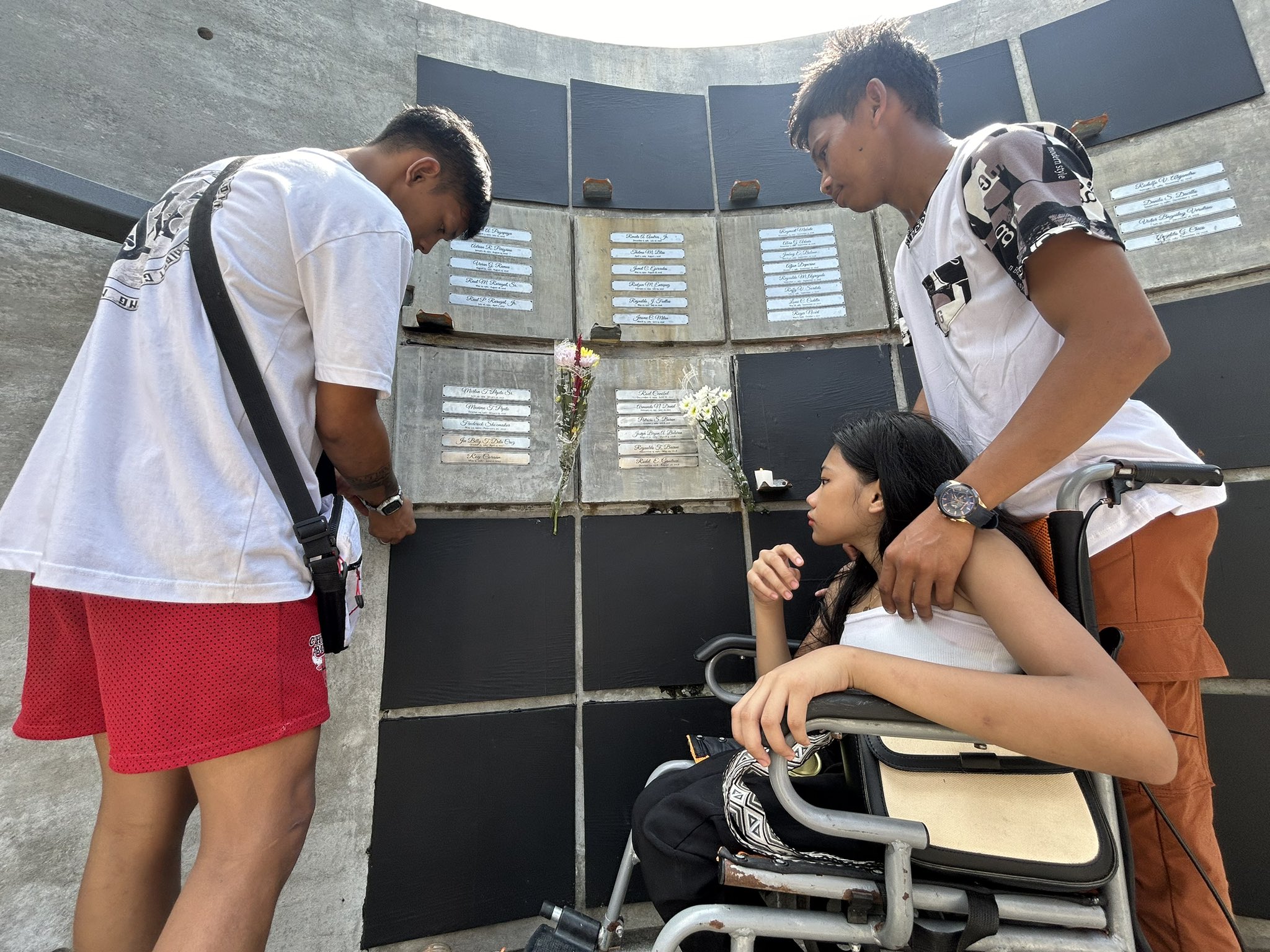
Wheelchair-bound Jecel Pepito, accompanied by her brothers, visits the resting place of her father and uncle, Marlon and Maximo Pepito, both killed during the height of the past administration’s brutal war on drugs. JOHN ERIC MENDOZA / INQUIRER.net
MANILA, Philippines — Jecel Pepito has been wheelchair bound due to a spinal condition that appeared three years ago. Still, her limited mobility did not stop her from visiting on All Saints’ Day the interred urns of her father and uncle, who were both victims of extrajudicial killings (EJK) under former President Rodrigo Duterte’s “Oplan Tokhang.”
Jecel went to Dambana ng Paghilom (Shrine of Healing) in La Loma Cemetery in Caloocan City, along with her brothers, to offer flowers and prayers to their slain loved ones.
The shrine-cum-columbarium was opened last May in remembrance of Duterte’s drug war victims.
READ: Wounds still fresh for families of ‘Tokhang’ victims
Official government data pegged the “Tokhang” fatalities at only over 6,000, but human rights watchdogs and the International Criminal Court—which is investigating Duterte over crimes against humanity—estimated the death toll between 12,000 and 30,000 from 2016 to 2019 alone, noting that many of them are EJKs.
READ: Wife of ‘Oplan Tokhang’ victim wants ICC trial for Duterte
Among the “tokhang” fatalities were Marlon Pepito and Maximo Pepito, who were both port workers in Navotas City.
They were killed by authorities during a police operation in January 2017.
Jecel said her father was a victim of mistaken identity, while her uncle was only trying to pacify the situation.
“My father’s name was similar to another suspect, so he was wrongly accused,” she told INQUIRER.net.
“They said that while Papa was being arrested, my uncle tried to stand between them. He asked them: ‘what did my brother do?’ He was speaking in Bisaya so the police did not understand him, which is why he was shot,” she recalled.
Jecel said one of her siblings witnessed the incident, leaving him traumatized.
“It was so painful, I could still not accept it even until now,” she said.
However, life goes on for Jecel and her other siblings, who are now working odd jobs to survive.
For her part, Jecel, 22, is now a graduating Grade 12 student.
Through the help of her teachers, she is also preparing for her physical therapy as doctors promised that a few sessions could already restore her ability to walk.
To pay it forward, Jecel said she will pursue an undergrad in education to become a teacher.
When their candles were eventually burned out, Jecel and her brothers decided to call it a day.
She had a final look at her loved ones’ niche before leaving the shrine, when an idea occurred to her.
Her face lit up.
“Let’s come back here after my graduation,” she then told her brothers.